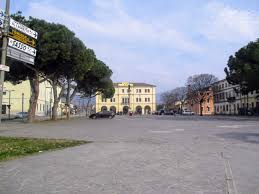Italy: A town that defeated coronavirus

Venice: There is a place in Italy where the coronavirus has already been defeated. Its name is Vo’, a small settlement of 3,000 inhabitants in the countryside of the Veneto region, about 70km from Venice.
It suddenly became famous around the world on 21 February, after the news of Italy’s first virus-related fatality: one of its residents, pensioner Adriano Trevisan.
After the ministry of health defined it as “a cluster of infection”, Vo’ was placed under quarantine on February 23.
The day after, one of the most iron-clad sanitary cordons in Italy’s history was built around it: no one could enter or leave the town, and goods (only medicines and food) could only reach Vo’ if authorised by the Prefetto (central government representative in Padua).
Alessio Turetta, 30, owner of a brewery in Vo’ and town councillor said to EUobserver: “The pillars of our strategy to manage the health emergency were quarantine and testing”.
The town implemented a similar model as South Korea, though with a less hi-tech approach, and on February 29, 97 percent of its population had been tested (Vo’ residents living elsewhere were of course excluded).
Nothing like this has been done elsewhere in Italy: in Vo’, they arrived to take 800 swabs in only one day.
At the end of the first mass screening on 29 February, three percent of the population resulted positive, and put under mandatory confinement at home.
“Those who tested positive were contacted directly by the health district: carriers with no symptoms or those with mild symptoms were quarantined at home, while those showing more serious symptoms (e.g. high fever) were immediately hospitalised” says Turetta.
“The carriers who remained at home were called several times a day to make sure they were abiding the quarantine, and check their conditions, such as their body temperature”.
Regardless of the test results, all residents were invited to stay at home and limit their movements as much as they could, just to the supermarket or the pharmacy.
When the testing was repeated between 6 and 8 March, only one percent of the population was found positive.
The spread of the illness has stopped, and there are no new infections. Some media reported that a new infection was found in Vo’ but Turetta confirms EUobserver that it was actually referred to one of the few carriers left found on 8 March.
A resident who prefered not to make his identity known, says: “When they tested the whole town, they crowded lots of people, no safety distance was respected. And I still don’t understand how the virus reached a town as remote as ours”.
But on the whole, it is undeniable that the Vo’ model has been a success.
Of course, at first people were upset and worried, but based on the interviews made by EUobserver, it seems that everyone tried to do their part.
Carla Santolin, owner of a pharmacy in Vo’, and the mayor’s wife, told EUobserver: “My son and I live in Vicenza, a nearby city. On 24 February morning, the day that the authorities officially closed Vo’, we let Vicenza at 7:30 and came to do the quarantine here, because we were needed too.
“The hospital in Schiavonia [that usually assists Vo’ residents] was closed; its doctors were in quarantine. For days, more than drugs people came here to understand what was going on, ask for news, be listened to. So it was absolutely necessary to stay open and in contact with people, and help.”
According to Mrs Santolin, “the Vo’ model worked great. The results have been outstanding.”
Sandro Lovison, owner of an agritourism in Vo’, thinks so too. “In my opinion, the situation was handled very well” he says to EUobserver, “and I think it was also a winning strategy. We, the 3,300 inhabitants, after 14 days [protected from] the outside world, found ourselves with zero infections. Zero”.





